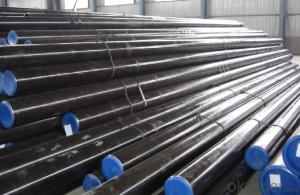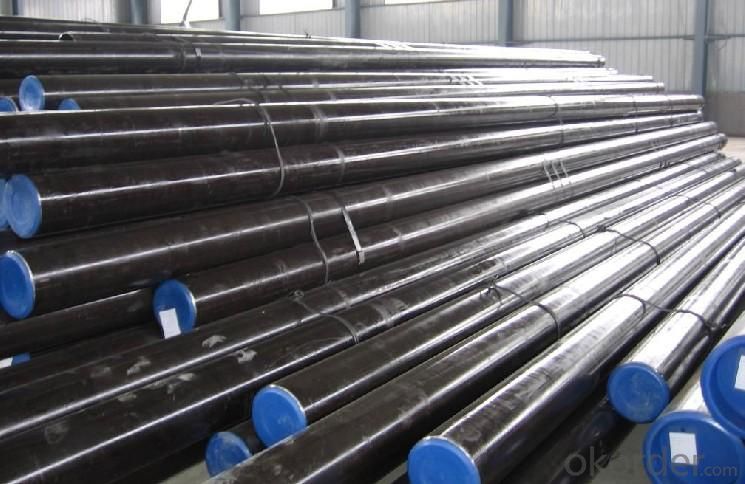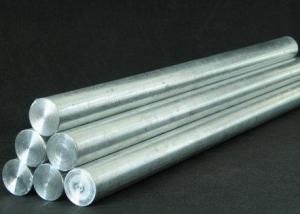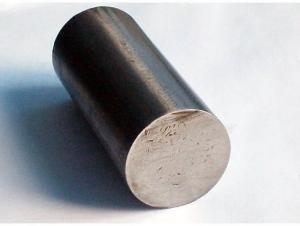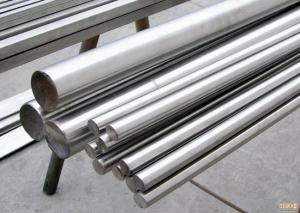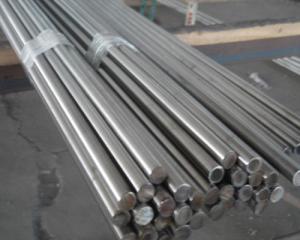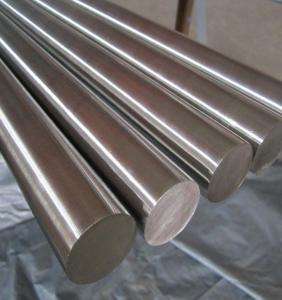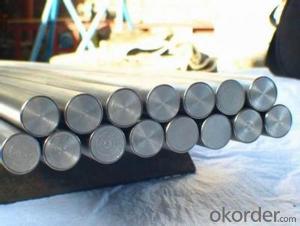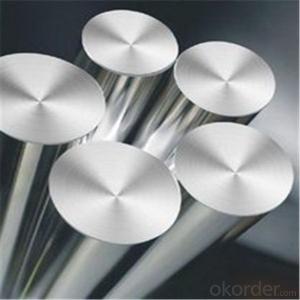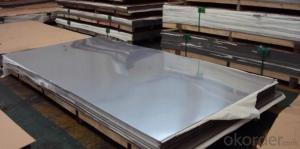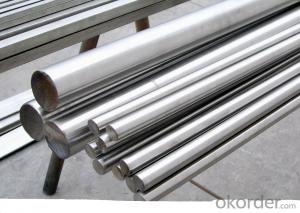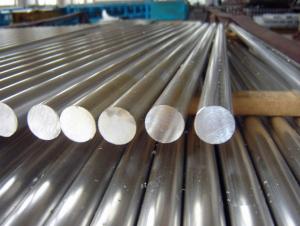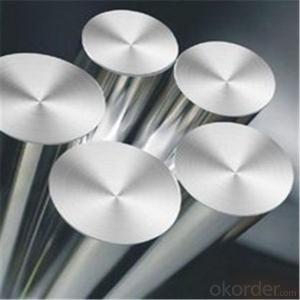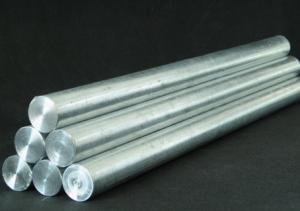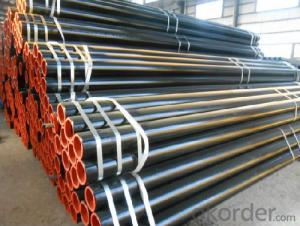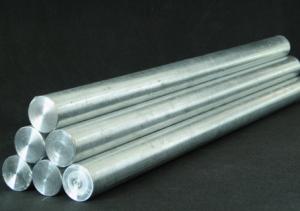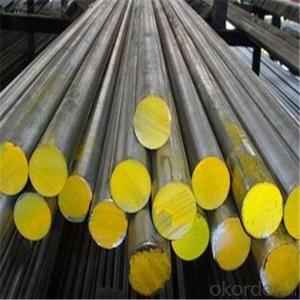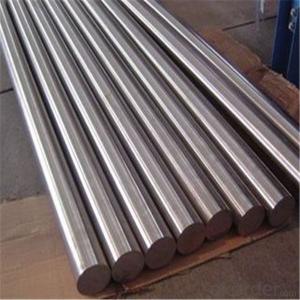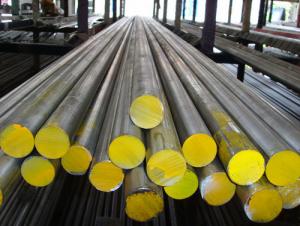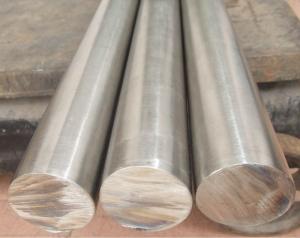Stainless Steel Round Bar-aisi 316
- Loading Port:
- China Main Port
- Payment Terms:
- TT OR LC
- Min Order Qty:
- -
- Supply Capability:
- -
OKorder Service Pledge
OKorder Financial Service
You Might Also Like
Quick Details
| Standard: | Dimensions: | Grade: | |||
| Place of Origin: | Brand Name: | Model Number: | |||
| Type: | Application: | Shape: | |||
| Certification: | Steel Grade: |
Packaging & Delivery
| Packaging Detail: | in bundle |
| Delivery Detail: | depend on the quantity, but the earliest time will be 15days |
Specifications
AISI316 stainless steel round bar
surface finish:bright and polished
Moq:5tons
Delivery time within 15days
Product name | AISI304 stainless steel round bar |
Standard | GB JIS ASTM AISI DIN ect |
Material | AISI 202 202 304 304L 316 316L 321 309S 310S ect |
Diameter | 20mm-3000mm |
Length | 6m length or as customer demand |
Used area | Our products are widely used in the architecture and engineering structure. |
Package | In bundles,or provide the special package as customer demand |
Certification | ISO9001.2000, Mill Test Certificate |
Thirdparty inspection | OMIC,SGS, as customer demand |
Remark | We can customer made for special requirement |
We have been specialized in the steel products for nearly14years old, we are sure to satisfy you with professional knowledge, competitive price,and fast service, if you are interested on us, pls never hesitate to contact with us directly.
- Q: Can stainless steel bars be mirror polished?
- Yes, stainless steel bars can be mirror polished. Mirror polishing is a process in which the surface of stainless steel is polished to a highly reflective and shiny finish. This is achieved by using progressively finer polishing abrasives and buffing compounds to remove imperfections and create a smooth and reflective surface. Mirror polishing enhances the aesthetic appeal of stainless steel bars and also provides added protection against corrosion.
- Q: Are stainless steel bars suitable for medical applications?
- Yes, stainless steel bars are highly suitable for medical applications. Stainless steel is a preferred material in the medical industry due to its excellent properties such as corrosion resistance, durability, and ease of cleaning. These bars are used in a wide range of medical applications including surgical instruments, medical implants, orthopedic devices, and dental tools. One of the key advantages of stainless steel bars is their resistance to corrosion. This makes them ideal for medical applications where sterilization and frequent exposure to bodily fluids are common. Stainless steel bars do not corrode easily, ensuring their longevity and preventing the risk of contamination. Furthermore, stainless steel bars are known for their strength and durability, making them suitable for applications that require high mechanical properties. For instance, surgical instruments and medical implants need to withstand significant forces and stresses. Stainless steel bars provide the necessary strength and structural integrity to perform reliably in these demanding conditions. In addition, stainless steel is an inert material, meaning it does not react with human tissues or bodily fluids. This biocompatibility is crucial for medical devices and implants, as it minimizes the risk of adverse reactions or allergies in patients. Stainless steel bars are extensively used in orthopedic implants, such as hip replacements and bone fixation devices, due to their compatibility with the human body. Lastly, stainless steel bars are easy to clean and maintain, which is essential in medical settings. They can be easily sterilized using various methods, including autoclaving, without losing their properties or introducing contamination. This makes stainless steel bars a hygienic choice for medical applications, where cleanliness and infection control are paramount. In conclusion, stainless steel bars are highly suitable for medical applications due to their corrosion resistance, durability, biocompatibility, and ease of maintenance. Their use in surgical instruments, medical implants, and other medical devices is well-established, ensuring the safety and effectiveness of these applications in the healthcare industry.
- Q: How do stainless steel bars resist citric acid?
- Stainless steel bars resist citric acid due to their high chromium content, which forms a passive oxide layer on the surface of the metal. This oxide layer acts as a protective barrier, preventing the citric acid from directly contacting and corroding the steel.
- Q: Can stainless steel bars be used in the transportation aftermarket?
- Yes, stainless steel bars can be used in the transportation aftermarket. Stainless steel is a durable and corrosion-resistant material, making it suitable for various applications in the transportation industry. It can be used in the production of components like handles, fasteners, and structural supports due to its strength and ability to withstand harsh conditions. Additionally, stainless steel's aesthetic appeal and low maintenance requirements make it a popular choice in the aftermarket, where quality and longevity are essential.
- Q: Are stainless steel bars safe for food and beverage applications?
- Yes, stainless steel bars are safe for food and beverage applications. Stainless steel is widely used in the food and beverage industry due to its excellent corrosion resistance, durability, and ease of cleaning. It is a non-reactive material, meaning it does not leach any harmful chemicals or flavors into food or beverages. Additionally, stainless steel is hygienic and resistant to bacteria growth, making it an ideal choice for food and beverage processing equipment, such as countertops, sinks, storage tanks, and utensils. It is also resistant to high temperatures and can withstand rigorous cleaning and sterilization methods, ensuring the safety and quality of the products.
- Q: Are stainless steel bars suitable for machining?
- Yes, stainless steel bars are suitable for machining. Stainless steel is known for its excellent machinability, making it easy to cut, shape, and drill. It also offers high strength and durability, making it suitable for various machining applications in industries such as automotive, aerospace, and manufacturing.
- Q: Can stainless steel bars be used in the manufacturing of pumps and valves?
- Yes, stainless steel bars can indeed be used in the manufacturing of pumps and valves. Stainless steel is a highly versatile and corrosion-resistant material, making it an ideal choice for applications where durability and reliability are important, such as in the production of pumps and valves. The high strength-to-weight ratio of stainless steel bars allows for the construction of robust and long-lasting components, ensuring the efficient and effective operation of pumps and valves. Additionally, stainless steel's resistance to corrosion, rust, and staining makes it suitable for use in various environments, including those involving exposure to chemicals, liquids, and high temperatures. Overall, the use of stainless steel bars in the manufacturing of pumps and valves helps to guarantee the longevity and performance of these essential industrial components.
- Q: Are stainless steel bars suitable for chemical processing plants?
- Stainless steel bars are widely used and highly suitable for chemical processing plants due to their exceptional resistance to corrosion and chemical reactions. This makes them an ideal material for this industry. Stainless steel bars exhibit resistance to a diverse range of chemicals, such as acids, alkalis, and corrosive solutions commonly found in chemical processing plants. Furthermore, they possess high strength and durability, which are essential qualities for the challenging and demanding conditions in these plants. Moreover, stainless steel bars can endure high temperatures and pressure, making them suitable for various applications within the facility. In conclusion, stainless steel bars are a dependable and effective choice for chemical processing plants because of their ability to withstand harsh chemical environments, durability, and corrosion resistance.
- Q: What are the different tolerance levels for stainless steel bars?
- Stainless steel bars have varying tolerance levels, which are determined by the specific grade and intended use of the material. Tolerance refers to the allowable deviation or variation in the dimensions or properties of the stainless steel bar. Different tolerance levels are established to ensure that the bars meet the required specifications and performance standards. Tolerance levels for stainless steel bars can be categorized into several aspects such as dimensional tolerances, straightness tolerances, surface finish tolerances, and mechanical property tolerances. 1. Dimensional Tolerances: These tolerances determine the permissible deviation in the dimensions of the stainless steel bar, including diameter, length, width, and thickness. The specific tolerance values can vary depending on the grade and size of the bar. For example, a common tolerance for stainless steel round bars is ±0.005 inches for diameter and ±0.010 inches for length. 2. Straightness Tolerances: Straightness refers to the extent to which a stainless steel bar deviates from a perfectly straight line. Straightness tolerances specify the permissible amount of deviation in terms of bow, sweep, or camber. These tolerances ensure the bars are suitable for applications that require precise alignment and fitment. 3. Surface Finish Tolerances: Surface finish refers to the smoothness and appearance of the stainless steel bar's surface. Tolerance levels for surface finish are usually defined in terms of roughness average (Ra) or surface roughness. Different applications may require different surface finishes, and the tolerances ensure that the bars meet the specified requirements. 4. Mechanical Property Tolerances: Stainless steel bars are often subject to mechanical property testing to ensure they meet the desired strength, hardness, and other mechanical characteristics. Tolerance levels for mechanical properties are defined based on the specific grade and application requirements, ensuring that the bars possess the desired strength and performance. In summary, the tolerance levels for stainless steel bars vary depending on the specific grade and application. These tolerance levels encompass dimensional tolerances, straightness tolerances, surface finish tolerances, and mechanical property tolerances. Adhering to these tolerance levels is crucial to ensure the bars meet the required specifications and perform optimally in their intended applications.
- Q: Are stainless steel bars suitable for the aerospace industry?
- Stainless steel bars prove to be a fitting choice for the aerospace industry. Renowned for their high strength, durability, and resistance to corrosion, stainless steel possesses crucial attributes necessary for aerospace applications. Its ability to withstand heat, pressure, and diverse environmental conditions is exceptional, rendering it appropriate for utilization in aircraft components like landing gears, engine parts, structural elements, and fasteners. Moreover, stainless steel bars display commendable machinability and ease of welding, thereby granting them versatility across various aerospace manufacturing processes. In addition, the non-magnetic properties of stainless steel offer an advantage in specific aerospace scenarios where minimizing electromagnetic interference is imperative. In conclusion, stainless steel bars aptly comply with the rigorous requirements and standards of the aerospace industry, establishing them as a dependable choice for aerospace engineers and manufacturers.
Send your message to us
Stainless Steel Round Bar-aisi 316
- Loading Port:
- China Main Port
- Payment Terms:
- TT OR LC
- Min Order Qty:
- -
- Supply Capability:
- -
OKorder Service Pledge
OKorder Financial Service
Similar products
Hot products
Hot Searches
Related keywords
